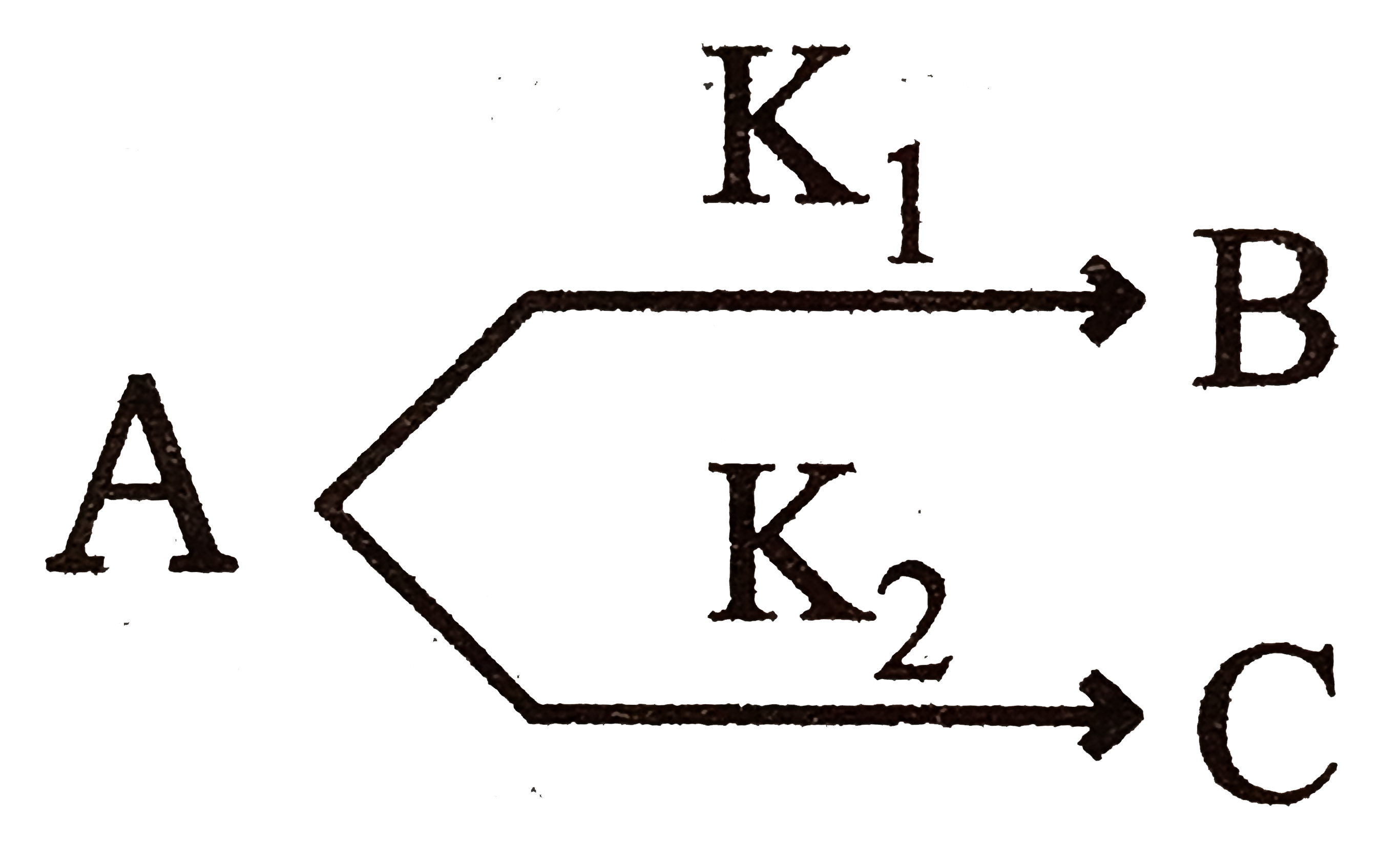For the first order reaction,
the degree of dissociation is equal to (1−e−kt)
a plot of reciprocal concentration of the reactant vs time gives a straight line
the time taken for the completion of 75% reaction is thrice the 12 of the reaction
the pre-exponential factor in the Arrhenius equation has dimension of time, T−1
The correct Answer is:A, D
To solve the question regarding a first-order reaction, we will break down the steps to find the degree of dissociation (α) and analyze the options provided.
1. Understanding Degree of Dissociation (α):
- For a reaction, the degree of dissociation (α) is defined as the fraction of the initial amount of reactant that has dissociated. If we start with 1 mole of A, and x moles dissociate, then:
α=x1=x
2. Relating α to Concentrations:
- If we denote the initial concentration of A as C0 and the concentration at time t as Ct, then:
Ct=C0e−kt
- The amount dissociated (x) can be expressed as:
x=C0−Ct
- Substituting for Ct:
x=C0−C0e−kt=C0(1−e−kt)
3. Finding α:
- Now, substituting x into the expression for α:
α=xC0=C0(1−e−kt)C0=1−e−kt
- Thus, the degree of dissociation for a first-order reaction is:
α=1−e−kt
4. Analyzing the Options:
- Option 1: The expression α=1−e−kt is correct.
- Option 2: A plot of reciprocal concentration (1/C) versus time does not yield a straight line for a first-order reaction, so this option is incorrect.
- Option 3: The time taken for 75% completion is not thrice the half-life; it is actually twice the half-life. Therefore, this option is incorrect.
- Option 4: The pre-exponential factor (A) in the Arrhenius equation has the same dimensions as the rate constant (k) for a first-order reaction, which is time inverse (s⁻¹). This option is correct.
5. Final Conclusion:
- The correct answers are Options 1 and 4.
- For a reaction, the degree of dissociation (α) is defined as the fraction of the initial amount of reactant that has dissociated. If we start with 1 mole of A, and x moles dissociate, then:
α=x1=x
- If we denote the initial concentration of A as C0 and the concentration at time t as Ct, then:
Ct=C0e−kt
- The amount dissociated (x) can be expressed as:
x=C0−Ct
- Substituting for Ct:
x=C0−C0e−kt=C0(1−e−kt)
- Now, substituting x into the expression for α:
α=xC0=C0(1−e−kt)C0=1−e−kt
- Thus, the degree of dissociation for a first-order reaction is:
α=1−e−kt
- Option 1: The expression α=1−e−kt is correct.
- Option 2: A plot of reciprocal concentration (1/C) versus time does not yield a straight line for a first-order reaction, so this option is incorrect.
- Option 3: The time taken for 75% completion is not thrice the half-life; it is actually twice the half-life. Therefore, this option is incorrect.
- Option 4: The pre-exponential factor (A) in the Arrhenius equation has the same dimensions as the rate constant (k) for a first-order reaction, which is time inverse (s⁻¹). This option is correct.
- The correct answers are Options 1 and 4.
Similar Questions
Knowledge Check
Half life of a first order reaction and a zero order reaction are same. Then the ratio of the initial rate of the first order reaction to that of zero order reaction is
A10.693B2×0.693C0.693D2/0.693For a first order reaction, the concentration of reactant :
Ais independent of timeBvaries linearly with timeCvaries exponentially with timeDNoneFor a first order reaction, units of rate constant are
Atime−1BL mol−1s−1Cmol L−1s−1Dmol L−1

